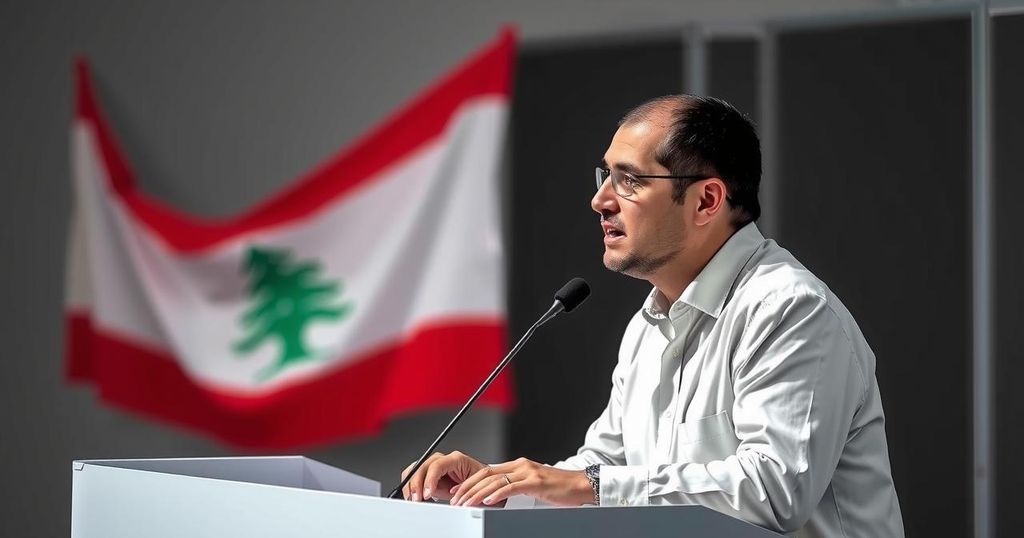Lebanon is set to elect a new president after a two-year void. The election is urgent due to ongoing political and economic crises and the recent ceasefire between Israel and Hezbollah. Joseph Aoun, a leading candidate, is expected to garner support across political factions. The election’s outcome is crucial for establishing a functioning government to address pressing issues and restore citizen confidence.
Lebanon is poised to elect a new president on Thursday, marking a significant change after more than two years without effective presidential leadership. The country is currently experiencing severe political and economic crises, with a transitional government led by Prime Minister Najib Mikati lacking substantial powers to address these issues. The recent ceasefire agreement between Israel and Hezbollah has created a renewed urgency for a functioning government to implement this peace deal before its expiration at the end of January.
The upcoming election occurs within a context of instability, exacerbated by an ongoing economic recession, frozen bank deposits, and a devalued currency. Over 1.3 million internally displaced people have been affected by the conflicts, and there is great need for their safe return as well as for the numerous Syrian refugees in Lebanon. Michael Bauer, the head of the Beirut office of the Konrad Adenauer Foundation, emphasized that resolving Lebanon’s crisis requires more than a minimal compromise; a president embodying a new vision is essential.
As the election approaches, Lebanese political factions are under considerable pressure to negotiate viable candidates. Lebanon’s parliament is divided among multiple groups paralleled with its diverse ethnic and religious make-up, necessitating compliance with a confessional system where the roles of the president, prime minister, and speaker of parliament are assigned based on sectarian lines. Joseph Aoun, the commander of the Lebanese Armed Forces and a Maronite Christian, has emerged as a leading candidate who enjoys support across the political spectrum due to a willingness to compromise.
Hezbollah’s shift towards accepting a candidate like Aoun reflects a decline in its political influence following recent conflicts. Lebanese political analyst Ronnie Chatah noted that Hezbollah’s previous opposition to Aoun has waned, suggesting that the military leader may likely become the next president. This potential victory could reinstate confidence among citizens as the army remains one of the most trusted institutions in Lebanon, viewed positively by many citizens seeking new leadership.
The most critical outcome of the election, according to Chatah, is the establishment of a government that is legitimate and responsive to the electorate. This development is crucial for Lebanon’s overall functionality as a state. After a prolonged period of ineffective leadership, the prospect of electing a president signifies a hopeful step toward stable governance, with both domestic and international implications.
Lebanon’s political landscape has been tumultuous, particularly following the absence of a president for over two years. The transitional government under Prime Minister Najib Mikati has struggled to effectively manage the country’s significant economic and social challenges, including a severe recession, monetary instability, and a fractured political system. The need for a credible leadership is further underscored by recent conflicts between Israel and Hezbollah, highlighting the urgency of solidifying a ceasefire agreement and addressing the humanitarian crises stemming from internal displacement and refugee influxes.
In conclusion, Lebanon stands at a pivotal juncture with the potential election of a new president after years of instability. The forthcoming election not only influences the immediate governance of the nation but is also crucial for ensuring a reliable leadership that can tackle the enduring crises and restore public trust. As political factions navigate the electoral process, the emergence of Joseph Aoun as a candidate embodies a possible pathway toward a renewed and effective Lebanese government, aligning with the urgent expectations of its populace.
Original Source: www.dw.com






